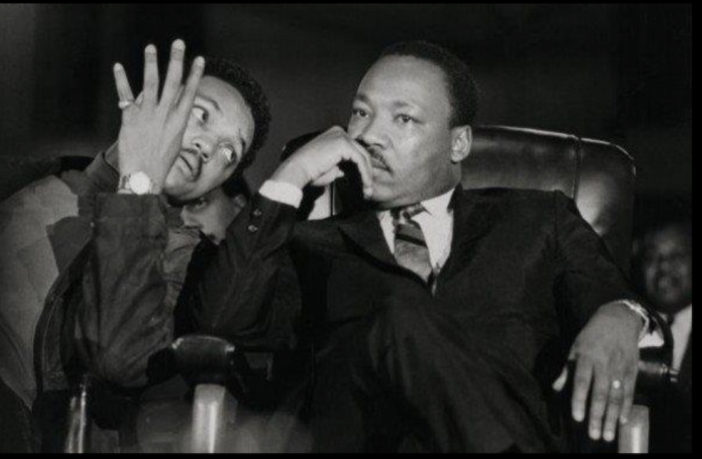Virginia Ali
The Rev. Dr. Martin Luther King Jr. had just met with President John F. Kennedy to discuss his plans to convene the 1963 March on Washington, and JFK was concerned.
“Dr. King and organizers of the March often came into Ben’s because their office was on 14th and U,” said Virginia Ali, who co-founded Ben’s Chili Bowl with her husband Ben Ali in August 1958. “That was a real privilege meeting with Kennedy, but he was concerned that a large protest would provoke injustice.”
Despite the President’s concerns, more than 250,000 people converged on the grounds between the Washington Monument and the Lincoln Memorial on August 28, 1963, and Mrs. Ali said, “Ben and I were there.”
Had King lived, he would have been 94 on Jan. 15, and in observance of the occasion on Monday, Ben’s Chili Bowl will serve free meals to school teachers who visit the restaurant.
“I am very concerned about our young people,” said Ali, 89, who will celebrate the 65th anniversary of the popular restaurant for civil rights activists and families at the height of segregation.
Ali, who turns 90 this year, said the secret to her vitality is “staying busy and treating people like you want to be treated.”
Fred Gray
As he planned to fly to the Midwest to speak during a King holiday program, Fred Gray, the lawyer for King and Rosa Parks, spends his time these days continuing to keep King’s legacy alive.
“I am speaking in Lansing, Michigan, Sunday, and Monday, I will be at Emory University on Wednesday, and next week, I have to go down to Miami to speak to a group of lawyers,” said Gray, who, at 92, said. “I’m delighted to talk about Dr. King for several reasons.”
“I was one of two persons who recommended Dr. King at the Montgomery bus boycott, and the other person was Joanne Robinson,” he said. “We made that recommendation after Mrs. Park’s arrest.”
“It means a great deal to me personally because some years later when I was in the Alabama state legislature, between 1971 and 1972, I introduced (legislation that) the third Monday in January be a holiday after Dr. King,” Gray said, even though his bill never made it out of committee, he is glad King’s birthday became a national holiday.
Rev. Jesse Jackson
Rev. Jesse Jackson, 82, had plenty to say about what he is focused on this King holiday.
“When we register to vote, we change the composition of America,” Jackson. Referring to his two bids for president, Jackson said much has changed in the U.S. since the 1980s. “We won in 84; we won 88, and now so many people are running for everything.”
Jackson, who has slowed down a bit as he battles Parkinson’s disease, also said he was happy that his son Jonathan Jackson was elected to Congress to represent the citizens in Illinois’ 1st Congressional District.
Rev. Grainger Browning
Rev. Grainger Browning, the pastor of Ebenezer A.M.E. in Fort Washington, said, “Dr. King would have been 94, and everything that we fought for 60 years ago we are fighting for today: jobs, police brutality, issues of race discrimination, but Dr. King would also be concerned with the role of technology and how it is dehumanizing personal relationships.
”It is no longer what’s important but what gets the most views,” Browning added. “What gets the most views can be the most outlandish, the craziest. It’s no longer world poverty, world hunger because these issues are no longer popular.”
Browning talked about when King came out against the war in Vietnam, “I don’t remember anyone who was spoken of as negatively at that time.”
Jane Johnson
Jane Johnson, a retired educator who grew up in Lynchburg, Virginia, said, “Dr. King was one of the most hated men in America.”
Johnson, who later moved to the District, was part of the individuals driving King, and explained that there were unusual steps taken for the leader’s protection, such as staying in rooms and boarding in private homes.
The King Center Honors Melanie Campbell
King was assassinated on April 4, 1968, and a few years later, the Martin Luther King Jr. Center for Nonviolent Social Change opened in Atlanta adjacent to his tomb.
On Jan. 14, the King Center presented “The Beloved Community Awards,” and one of the honorees was Melanie Campbell, president and CEO of the National Coalition on Black Civic Participation (NCBCP).
“The King Center is where I cut my teeth, and to get this award is humbling,” said Campbell in an interview before she accepted her award during a program hosted by Malcolm-Jamal Warner and Keisha Knight Pulliam.
The Beloved Community Awards recognizes national and international individuals and organizations that exemplify excellence in leadership, pursue social justice, and are committed to creating the Beloved Community.



